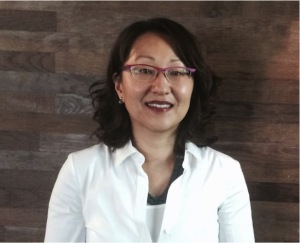by
Lauren Dubinsky, Senior Reporter | September 26, 2014
Cancer Outcomes Tracking and Analysis (COTA), Inc. announced on Tuesday that they closed $3.7 million in a planned $7 million Series A funding round. It will be used to further develop their big data platform, which was deployed last year.
The COTA platform provides real-time data for cancer care on clinical outcomes and cost, and it's the first platform designed for the value-based reimbursement model. "It really enables actionable reporting analysis so that providers, patients and health plans have the data they need to improve outcomes while reducing unnecessary costs," Kelly Choi, chief operating officer of COTA, told DOTmed News.
Over 100 oncologists and national leaders in cancer biostatistics and health care reimbursement contributed to the development of COTA. It allows physicians to view very specific subsets of patients including pre-menopausal and stage 2b patients and also the outcomes for those specific clinical subtypes.



Ad Statistics
Times Displayed: 75267
Times Visited: 5317 MIT labs, experts in Multi-Vendor component level repair of: MRI Coils, RF amplifiers, Gradient Amplifiers Contrast Media Injectors. System repairs, sub-assembly repairs, component level repairs, refurbish/calibrate. info@mitlabsusa.com/+1 (305) 470-8013
Breast cancer for example has a variety of different subtypes, and if the physicians have access to molecular information before the patient undergoes treatment, then certain therapies such as chemotherapy could be avoided for the patients whose genetic signature reveals that they won't benefit from it.
As health care moves from a fee-for-service model to a value-based model, payors and providers have to start to work together to take care of patients. "Insurance companies as well as the providers must sit down and talk through how this partnership works — they have to forecast what they should expect on both the clinical quality side as well as the financial side," said Choi. "There is no way to do that unless you understand your patient population at a very specific subtype level."
For example, one type of breast cancer might be very aggressive and require a very high cost of care and the patients might have much higher chances of poor outcomes, but a different type of breast cancer might not require as intensive therapy, and the patient might have a much better prognosis.
"Cancer is so sophisticated you really have to understand things on a much more specific level," said Choi.
Now that COTA received the funding they needed, they're going to make refinements on the next version of their platform. They're going to create more efficiency around data capture and transfer and also make the platform more sophisticated so that it can anticipate new therapies and diagnostic tests that might be coming down the pipe.
"It's really making sure that we incorporate those important things so that we can actually start to collect data and give both the oncologist, as well as the health plans, meaningful data on some of these new therapies and diagnostic tests," said Choi.

